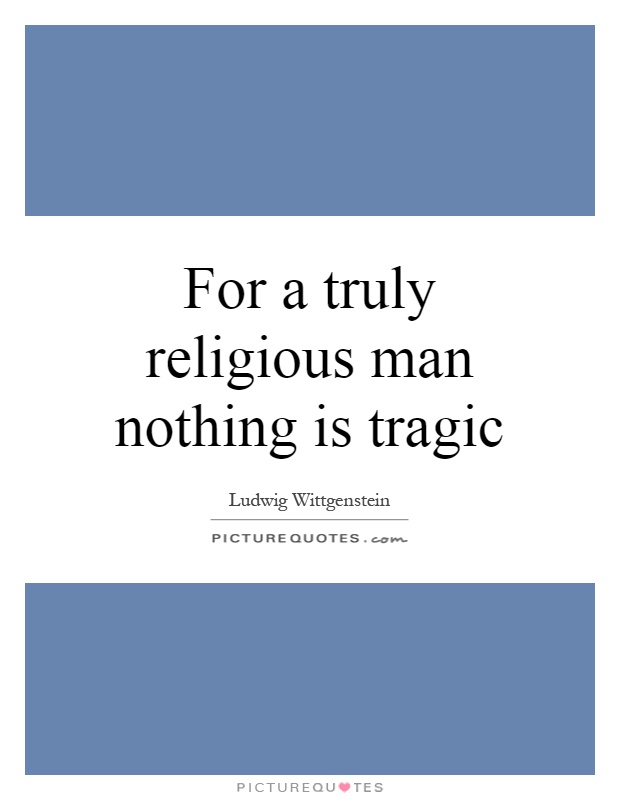For a truly religious man nothing is tragic

For a truly religious man nothing is tragic
Ludwig Wittgenstein, a renowned philosopher known for his work in logic, language, and the nature of reality, had a unique perspective on religion and tragedy. He believed that for a truly religious man, nothing is tragic. This statement may seem paradoxical at first glance, but when examined through the lens of Wittgenstein's philosophy, it becomes clear that he was referring to the transformative power of faith and the ability of religion to provide solace and meaning in the face of adversity.Wittgenstein was deeply interested in the nature of belief and the role that religion plays in shaping our understanding of the world. He saw religion as a form of life, a way of living and experiencing the world that goes beyond mere intellectual understanding. For Wittgenstein, religion was not about dogma or doctrine, but about a deep and personal connection to something greater than oneself.
In this context, the idea that nothing is tragic for a truly religious man makes sense. For someone who has a strong faith and a deep sense of connection to the divine, even the most difficult and painful experiences can be seen as part of a larger, meaningful whole. Tragedy is not the end of the story, but a chapter in a larger narrative that is ultimately guided by a higher power.
Wittgenstein's views on religion and tragedy are also influenced by his belief in the power of language and the limits of human understanding. He believed that language is inherently limited and that there are some things that cannot be expressed in words. This idea is reflected in his famous statement, "Whereof one cannot speak, thereof one must be silent." In the face of tragedy, words may fail us, but faith can provide a deeper, more profound understanding that transcends language.












 Friendship Quotes
Friendship Quotes Love Quotes
Love Quotes Life Quotes
Life Quotes Funny Quotes
Funny Quotes Motivational Quotes
Motivational Quotes Inspirational Quotes
Inspirational Quotes